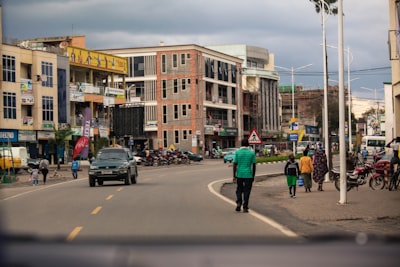Summary
On June 27, 2025, Rwanda and the Democratic Republic of the Congo (DRC) signed a peace agreement in Washington, aimed at ending ongoing violence in mineral-rich eastern DRC. The ceremony, overseen by US Secretary of State Marco Rubio and touted by Donald Trump, promises a Rwandan military withdrawal within 90 days, regional economic integration, and the disarmament of rebel groups, notably the Hutu-led FDLR. The deal, mediated by Qatar and the US, comes against the backdrop of recent escalations by the M23 rebel group and decades-long tensions rooted in the aftermath of the 1994 Rwandan genocide. Notably, Trump publicly celebrated US acquisition of Congolese mineral rights as part of the deal, sparking controversy and criticism for prioritizing American economic interests.
Analysis
At first glance, the agreement seeks to address interminable conflict and regional instability by focusing on security withdrawal, armed group disarmament, and economic integration. However, significant questions persist about motivations and beneficiaries. Trump's emphasis on mineral rights acquisition for the US, rather than humanitarian or democratic aims, signals a transactional—not altruistic—approach. The lack of detail on economic arrangements, justice for past atrocities, and mechanisms of accountability highlights both a vagueness and a prioritization of resource extraction over local agency.
The framing of the deal also raises questions. While the agreement invokes respect for sovereignty and territorial integrity, Congolese Nobel laureate Denis Mukwege criticizes it for being opaque, lacking reparative justice, and potentially rewarding Rwanda’s alleged aggression (echoing concerns long voiced by local activists and UN observers). The focus on attracting Western investment into tantalum, cobalt, gold, and lithium mining carries the risk of perpetuating the DRC’s historical experience of being treated primarily as a source of extractive wealth, not as a polity with a right to sovereign development and justice.
Discussion
The significance of this deal transcends its surface goal of peace. It sits at the intersection of geopolitical jockeying, postcolonial exploitation, and the persistent fragility of African sovereignty in international relations. Resource-rich, conflict-ravaged areas like eastern DRC become sites where major powers—here, the US—seek economic advantage under the pretext of peacemaking. This dynamic recalls the long history of Western interventions in Africa that have often prioritized resource access over sustainable, just peace for local populations.
Mukwege’s critique is essential: can peace brokered without justice or broad participation truly endure, or will it sow seeds for future resentment and instability? While regional stability and integration could promise mutual prosperity, the underlying reality is that local populations continue to bear the brunt of conflict and resource extraction, often with minimal say in deals made in foreign capitals.
It is also telling that this mediation was steered largely by external powers, with scant attention paid to local civil society, truth-telling, or reparations. This calls into question who gets to define peace, and at what price. Furthermore, as green technologies spike global demand for Congolese minerals, the risk rises that international actors will cloak economic self-interest in the language of peace and humanitarian progress.
Critical questions remain: Who will monitor the agreement’s implementation? Will mineral wealth finally benefit Congolese citizens, or simply line the pockets of foreign corporations and elites? What safeguards exist for justice and human rights? While Trump’s transactional rhetoric is especially blunt, the underlying pattern is as old as the ‘resource curse’ itself. The world must watch this process carefully—and, ideally, demand far more transparency and accountability than has been shown so far.

Comments
No comments yet. Be the first to comment!